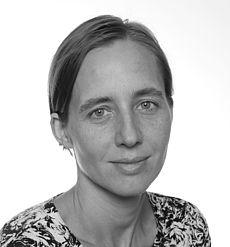- Teaching
- Transformations
- April 1, 2020
Transformations II 2020
Complementary to the Urban Design Project 2: Urgent Matter(s): Maintaining Social Infrastructures, this seminar will critically engage with discourses on public space under the ongoing Covid-19 pandemic. Building on the Transformations I module we will mobilize theoretical and historical knowledges and approaches from the field of urban studies. Given the circumstances, in the current summer term 2020 the seminar will be offered as a thematically structured online reading and academic writing course.
Based mainly on the academic disciplines of critical urban geography, planning theory, and urban sociology, the module has three key aims. First, it gives students from different undergraduate studies a collective background to navigate the interdisciplinary academic field of urban studies. The close reading, written reflection and commenting of key texts in the seminar allows students to bring their specific understandings of urban theories and concepts to class and thus puts their preconceptions on ‘the table’. The reading list for the summer term represents the impossibility of teaching a canon of approaches to public space (ranging from Setha Low & Neil Smith to Kurt Iveson) and not excluding underrepresented knowledges in the academic canon (particularly queer-/feminist and de/post-colonial approaches, hence we read for example: Iris Marion Young, AbdouMaliq Simone, Asef Bayat and Gill Valentine).
The second aim of the module is to supports students in developing their academic reading and writing skills. This refers not only to reading and analysing academic texts. We also encourage students to experiment with peer review processes, the students write different types of texts during the course of the year and they receive detailed feedback on their writing.
The third aim of the module is rather an aspiration: to make theoretical thinking part of the toolbox for students of urban design beyond the theory class. It is set out to collectively recognise that urban transformations are always led by assumptions around what ‘the good city’ is. Thus, if we want to study and contribute to the transformation of cities we need to choose specific knowledges to build upon. Under the specific circumstances of the coronavirus pandemic our aim is to re-read the literature in light of the current state of the public sphere. The range of perspectives which are important to emphasise is broad and encompasses for example: the public spaces of cities under lockdown, the fear of infection through human contact, the strong restrictions of public life and possible articulations of discontent, the effects of closed borders and police repression, and the effects of staying at home on domestic violence.
Due to the current circumstances, the course will be held online.
contributors

Prof. Dr. Monika Grubbauer
Professor, History and Theory of the City

M.A. Nina Fräser
Academic Staff, History and Theory of the City
2019/2020
Urgent matter(s)

Taking care of urban futures
Aktuelle Debatten um die Zukunft der Städte offenbaren drängende Problemlagen in Bezug auf ökologische und soziale Fragen. Vor dem Hintergrund verstärkter globaler Urbanisierungsprozesse stellen sich die Auswirkungen von Klimawandel, Umweltzerstörung und Ressourcenknappheit als massive ökologische Krise dar. Auf sozialer Ebene wirft die Verschärfung von Ungleichheitsdynamiken auf lokaler und …
